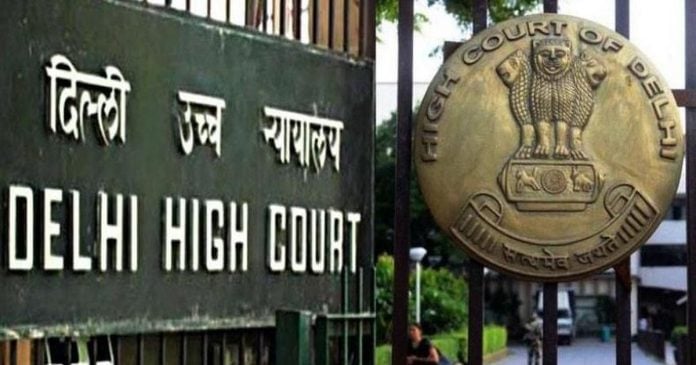The Delhi High Court on Thursday sought response from the Centre and the Ministry of Defence on a petition challenging the vires of the Essential Defence Services Act, 2021, which came into effect in June this year, regarding prohibition of strike by personnel engaged in essential defence services.
The Division Bench comprising Chief Justice D.N. Patel and Justice Amit Bansal issued notice in the petition moved by a National Federation comprising more than 400 registered trade unions of defence civilian employees, alleging that the Act is in violation of the Constitution.
Claiming that the Government has widened the ambit of term ‘strike’ in the impugned Act, Senior Counsel Sanjay Parikh submitted that strike, in any form, is a form of demonstration by the workmen, which is recognised to be a statutory right.
He further submitted that the impugned Act provides for serious consequences, including dismissal from service without any inquiry and initiation of criminal proceedings, for participation in strikes.
The Bench asked the Senior Counsel to apprise the Court about any decision, wherein it has been held that there is a right vested in the workmen to go on strike. Parikh submitted that in the case of B.R Singh and Others vs Union of India and Others, it has been held by the Apex Court that strike is only a form of demonstration; and thereby, the right to strike is an important weapon in the armoury of workmen.
“In essential defence services also, you want to go on strike?… Then military people will also say like this. What will happen if everybody will speak like this?,” the bench stated orally.
“Law can be amended… Always the law is being developed. It is not that what was prevailing in 1947 for the concept of strike should be continued even in 2021,”
-added the Bench, while observing that the concept of strike cannot continue for a prolonged period.
ASG Chetan Sharma informed the Bench that the Act ceases to have effect on expiry of one year from the date on which it received the assent of the President. The matter is posted for November 16 for further hearing.
Filed by the All India Defence Employees Federation through Advocates Surabhi Agarwal, Ritwik Parikh and Satwik Parikh, the plea claimed that the Act does not impose a reasonable restriction on the right to freedom of expression.
Also Read: No Smashing Success Here
The plea highlighted that according to Rule 81A of the Defence of India Rules, strikes in the matters of defence or essential services were not prohibited per se, but were made subject to a reasonable notice. Furthermore, even the Industrial Disputes Act, 1947, recognises the right to strike in public utility services, subject to certain limitations.
The plea read, “The relationship between an employer and an employee is generally regarded a civil contract for which civil remedies can be claimed by either party. But after the introduction of the Act, the scenario will change for both the employers and employees as the Government has brought criminality to any act.
“Considering the law is intended to be used against poor workmen, the absence of protection to safeguard from misuse of the provisions far outweighs any possibility of fair, reasonable and just use/application of the provisions,” the plea added.


